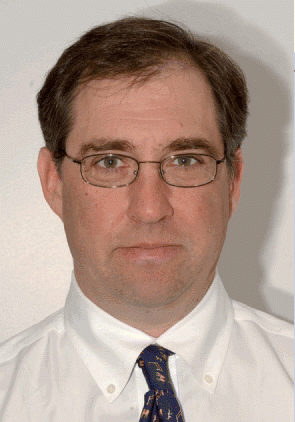Dr. Snyderman noted that many surgeons who are doubtful of using endoscopy for sinonasal malignancies support en bloc surgery, which involves working around the periphery of the malignancy and taking out the entire tumor with a margin of disease-free tissue around it.
Explore This Issue
May 2009However, in skull base surgery, small spaces and proximity of nerves and vessels to the tumor make en bloc surgery challenging, said Dr. Snyderman. The optic nerve, carotid artery and brain make achieving margins technically difficult, he explained.
Increasing evidence indicates that en bloc procedures aren’t necessary and that tumors can be removed a little bit at a time, said Dr. Snyderman. For example, during supraglottic laryngectomy, surgeons can remove cancers at the top of the voice box in a piecemeal fashion through the mouth, using a laser. Results are as good as in open procedures, he said.
There are no published data suggesting that taking tumors out in a piecemeal manner is better than taking the entire tumor out at once for either endoscopic or open surgery, with the stated goal of complete tumor resection, noted Dr. Kraus.
Physicians can also treat esthesioneuroblastomas, including advanced-stage tumors or Kadish stage C, with endoscopy by debulking the intranasal portion of the tumor to provide visualization of the margins and to assess the extent of disease, said Dr. Snyderman. The area of skull base involvement (dura and olfactory tracts) can then be removed in an en bloc fashion. This approach can be successful if the surgeon achieves clear margins and adheres to oncologic principals for removing the malignancy, he said.
The ability to achieve widely negative margins is fairly limited for both endoscopic and open craniofacial resection due to the presence of the orbits, optic nerves, dura, and brain, said Dr. Kraus. Complete tumor resection allows for narrow microscopically negative margins with radiation being employed in a majority of patients to address the risk of microscopic residual disease, he added.
 The treatment needs to be individualized to the patient and, candidly, to the ability of the surgeon.
The treatment needs to be individualized to the patient and, candidly, to the ability of the surgeon.
-Dennis Kraus, MD
More Research Needed
Although endoscopy holds promise, more data are needed to support the contention that its oncologic results, morbidity, and mortality are as good as those for open surgery, said Dr. Kraus. Most studies are in small groups of patients, and long-term follow-up data comparing it with open surgery are not yet available, he said.
Leave a Reply